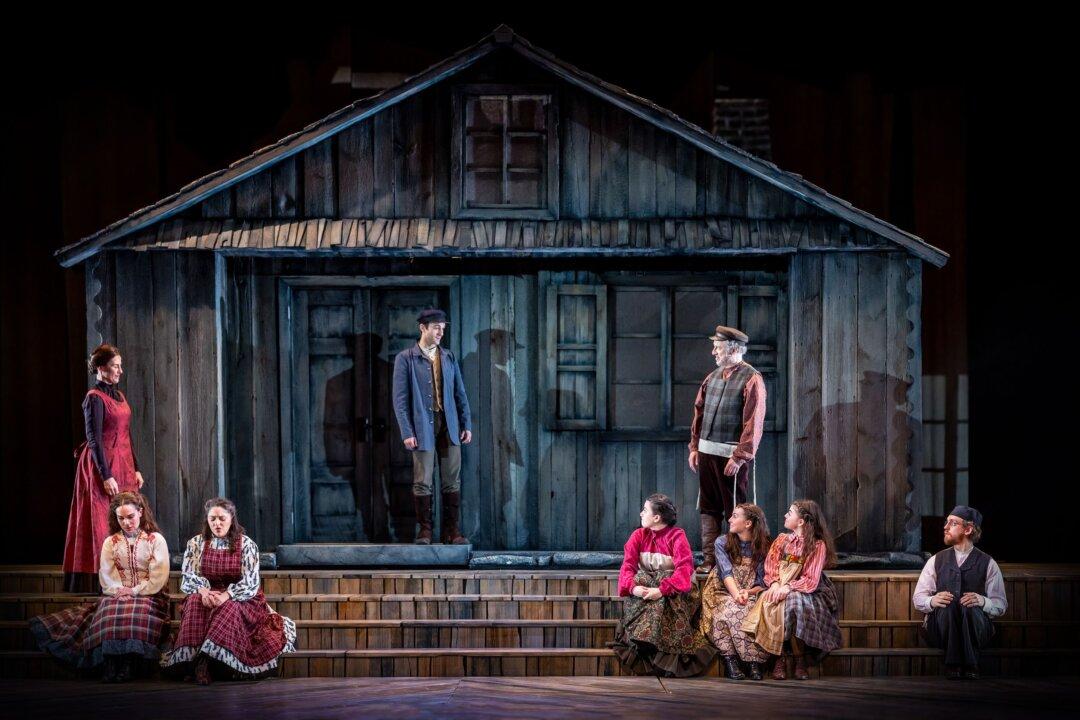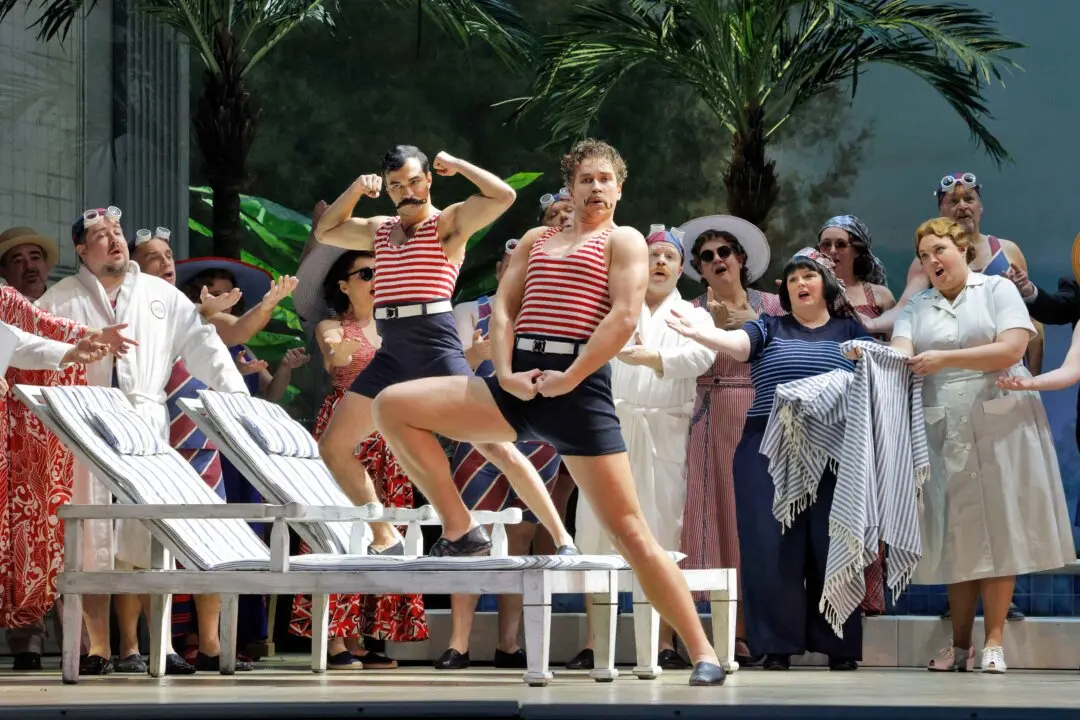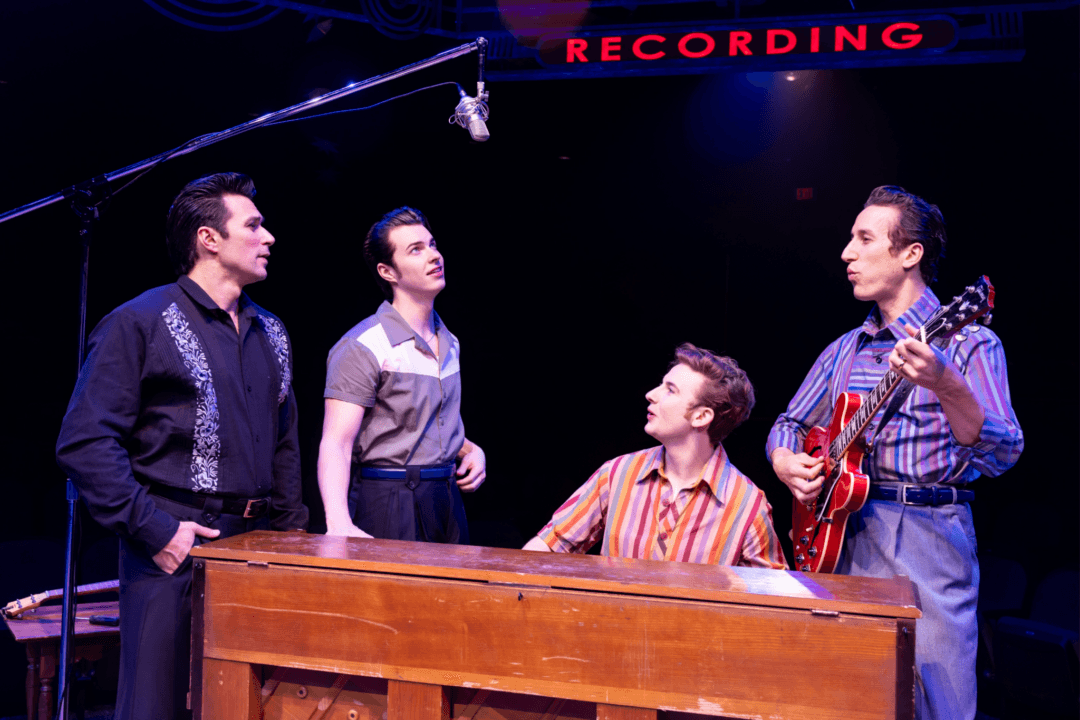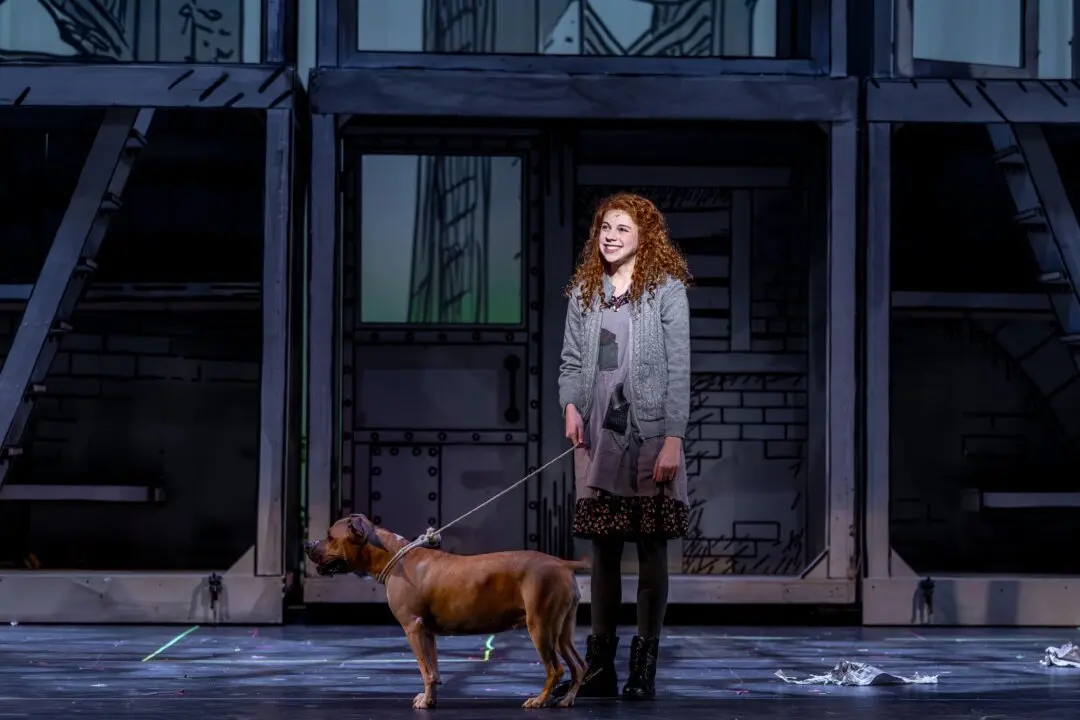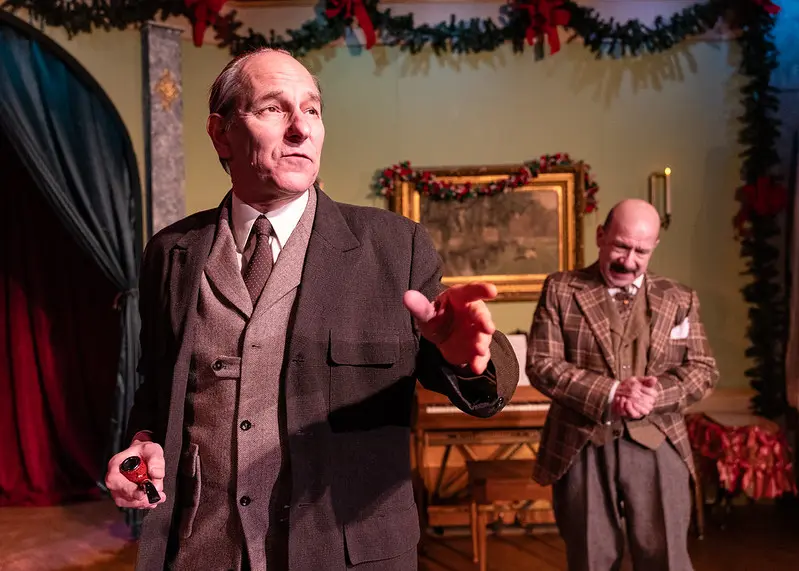OAKBROOK, Ill.—As “Fiddler on the Roof” was being developed, director Jerome Robbins asked the show’s writers what the musical’s main theme was. Looking back over those early years, lyricist Sheldon Harnick said that someone in the group said, “it’s about tradition,“ and ”Tradition” became the show’s opening number. Tradition was the theme when the musical premiered on Broadway in 1964, and it’s still the major thread of the story.
But “Fiddler,” based on Yiddish author Sholem Aleichem’s tales about Jewish life in the Pale of Settlement during the pogroms of Czarist Russia in 1905, is about much more. That much more is apparent in the show’s reincarnation, now playing at the Drury Lane Theatre in Oakbrook, Illinois.

